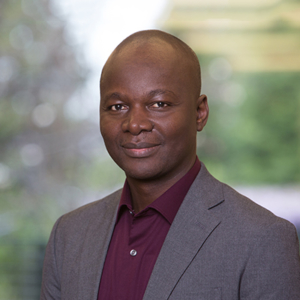United States Africa Strategy Panelists Underscore Africa’s Role in Shaping the Future of International Community
A United States Africa strategy panel organised by the Carnegie Endowment for International Peace on Tuesday emphasised Africa’s vital role in shaping the global future.
“Africa is – and increasingly will be – critical in making decisions about the future of our international community,” Judd Devermont, special assistant to the U.S. president, said at a seminar to discuss the status of the U.S. Strategy towards Sub-Saharan Africa unveiled by President Biden a year ago. “For every single priority issue for [the U.S.] government, our people, African people, the continent has to be at the table.”
The other panelists included Amb. Molly Phee, U.S. assistant secretary of state for African affairs; Amb. Johnnie Carson, special presidential representative for U.S.-Africa Leaders Summit Implementation and chair of the Afrobarometer International Advisory Council; Amb. Elsie S. Kanza, Tanzanian ambassador to the United States and Mexico; and Afrobarometer CEO Joseph Asunka.

The deliberations centered on progress toward the core objectives of the strategy, including systems and processes established to realise the outcomes of the U.S.-Africa Leaders’ Summit and how recent developments such as electoral transitions and economic and geopolitical factors enable and constrain progress.
Read also : How Enza Capital Plans to Invest Its New $58 Million Fund in African Startups
Amb. Phee noted that “Africa is strategic, and what we are trying to do is to make structural change internally and externally to help realise that vision. There are a lot of ways we are trying to consolidate the work we do in health, food security, and climate change.”
Amb. Carson highlighted transformative programmes, particularly the flagship digital transformation initiative addressing critical technological needs in Africa and the creation of the U.S. President’s Advisory Council on African Diaspora Engagement, a commitment made at the 2022 U.S.-Africa Leaders summit. Commenting on the announcement of the council’s inaugural members, Carson said, “The Diaspora Engagement Council is a programme which is designed for the secretary of state and the president to hear and take advantage of the voices of the diaspora community in the United States to strengthen the relation between the administration and the black community at large, and also to take advantage of the enormous knowledge, expertise, and energy that exist in the diaspora community. It’s a deliverable that was delivered.”
Speaking in Tanzania, Amb. Kanza noted that the U.S. continues to be her country’s strongest ally and that “With respect to democratic reforms, Tanzania is one of the beneficiaries of the Democratic Initiative that was launched in September last year at the United Nations General Assembly. We are committed to deepening and broadening democracy in Tanzania.”
During a 90-minute conversation moderated by Zainab Usman, director of the Africa Program at the Carnegie Endowment for International Peace, Asunka stressed the vital role of Afrobarometer survey findings in advancing the objectives of the U.S. Africa strategy. Reliable data help ensure that the voices and perspectives of African citizens are at the forefront of policy considerations in shaping the future of this critical international partnership, he noted. Drawing from the latest Afrobarometer survey data, Asunka shared insights on African perspectives on issues such as freedoms, corruption, democratic governance, gender and youth concerns, and climate change.
Read also : Kenya’s Businesses Poised for Huge Pan-African Trade Growth
“Addressing unemployment, especially youth unemployment, as well gender-based violence and facilitating equal access to and use of digital technology will align strongly with popular policy priorities on youth and women on the continent,” he said.
Regarding the state of freedoms in Africa, Asunka noted that while the overall outlook is positive, challenges persist, especially in countries such as Gabon, Congo-Brazzaville, and Eswatini, where both individual and media freedoms face constraints.
On limiting climate change, Asunka said majorities across Africa perceive it as a shared responsibility and are willing to make sacrifices, including accepting inconvenient policy outcomes such as job losses, to combat further environmental deterioration.
“This should come as good news to climate policy actors and activists: They have strong allies in African citizens,” he said.
The U.S. Africa strategy goes beyond traditional policy priorities of transparent governance, democracy, and security, incorporating new objectives concerning climate adaptation and post-pandemic economic recovery. Other panellists also emphasised Africa’s increasing significance in global decision making and the necessity of its presence at the international table for various priority issues.
Kelechi Deca

Kelechi Deca has over two decades of media experience, he has traveled to over 77 countries reporting on multilateral development institutions, international business, trade, travels, culture, and diplomacy. He is also a petrol head with in-depth knowledge of automobiles and the auto industry



